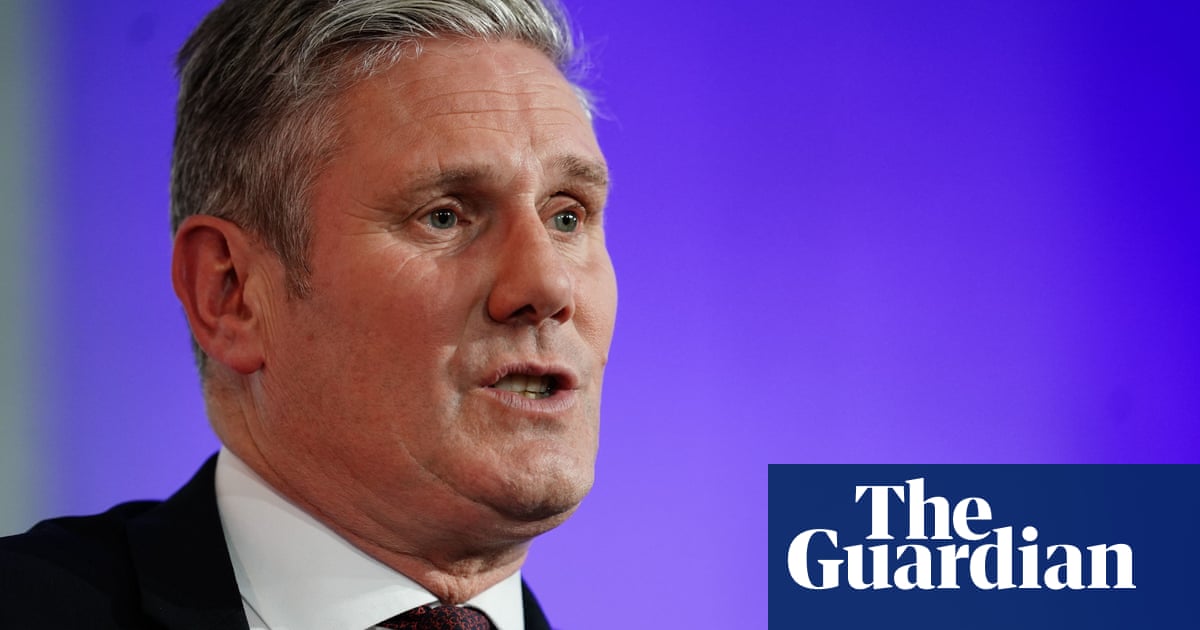
Keir Starmer has said Labour is set to ditch its longstanding commitment to abolish university tuition fees in England, arguing it was necessary to “move on” from the idea because of the economic situation.
Starmer said his party was “looking at options” for how to fund universities, but made it clear the existing promise to get rid of student-paid tuition fees, one of the pledges he made when standing to lead Labour in 2020, was being dropped.
“We are likely to move on from that commitment because we do find ourselves in a different financial situation,” the Labour leader told BBC Radio 4’s Today programme.
“You and others would be quizzing me hard if I just simply said I’m going to ignore the current economic situation and just press on with something, notwithstanding the cost.”
He continued: “We are looking at options for how we fund these fees. The current system is unfair, it doesn’t really work for students, doesn’t work for universities.” Labour would, he said, “set out a fairer solution” in the coming weeks.
Dropping the 2020 pledge should not be taken to mean “us accepting for a moment that the current system is fair or that it is working”, Starmer added.
The announcement prompted criticism from Labour Students, whose vice-chair, Fabiha Askari, said ditching the policy would be “seen by young people as a massive betrayal of our futures, and risks alienating Labour from our party’s own core vote”.
Momentum, the left-leaning Labour group, said Starmer risked a “Nick Clegg moment”, a reference to the decision by the former Liberal Democrat leader during the coalition with the Conservatives to change policy and embrace student fees.
However, a poll of students in England for the Higher Education Policy Institute showed that only 28% want Labour to abolish tuition fees, with views otherwise largely split on keeping the current system or reducing fees.
It is the latest among a series of the 10 pledges Starmer made to Labour members when he was standing to replace Jeremy Corbyn that he has since either dropped altogether or somewhat fudged.
Other pledges that have been subsequently rolled back from or watered down include one to ensure “public services should be in public hands”, to defend the free movement of people from the EU, and to stand “shoulder to shoulder with trade unions”.
Starmer told Radio 4 these were “very important pledges I made, the vast majority of which stand”, while arguing that some had been overtaken by events.
“One of them was, for example, defend free movement as we leave the EU,” he said. “Well, we’ve left the EU, so we’re in a different situation. So that’s clear.”
Others within Labour, particularly on the left of the party, dispute this and have argued Starmer made a series of pledges intended to secure the votes of a party membership then still tilted towards the ideas of Corbyn.
The decision to drop the abolition of tuition fees is nonetheless not unexpected given the estimate £9bn-plus annual cost of removing them in England.
Advocates of ditching the policy have argued that scrapping tuition fees would be economically regressive given the fact that university students tend to be disproportionately from better-off backgrounds, and are likely to earn more when they graduate.
There are also arguments that the amount of money involved could do more good elsewhere in education, for example in recruiting and retaining teachers.
Opponents of the scheme note that it saddles students with tens of thousands of pounds in debt, which they pay off at above-market-level interest rates, with many graduates forecast to never pay off the loan.
Universities have also warned that the cap on fees, set at £9,250 a year since 2017, means rising costs elsewhere means they lose thousands of pounds annually per student.
Some sector analysts have warned that universities could end up offering fewer places to UK students, instead focusing on international students and postgraduates, where the fees are not capped.












